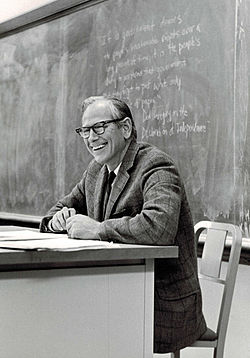Robert A. Dahl Quote
Thrasymachus's hypothesis that people deliberately seek to rule for reasons of self-interest has been restated many times. Hobbes, for example, held that people were impelled by their passions and guided by their reason. Passion is the wind that fills the sails, reason the hand on the rudder. A human being, to use another metaphor, is a chariot pulled by the wild horses of passion and steered by reason. Human desires are insatiable, but reason dictates prudence. With the aid of reason, people can discover the general rules or precepts that will enable them to improve their chances of gaining the ends their passions dictate. All people, then, seek power in order to satisfy their passions. But reasons tells them how to seek power to reduce frustration, defeat, and the chances of violent death.
Thrasymachus's hypothesis that people deliberately seek to rule for reasons of self-interest has been restated many times. Hobbes, for example, held that people were impelled by their passions and guided by their reason. Passion is the wind that fills the sails, reason the hand on the rudder. A human being, to use another metaphor, is a chariot pulled by the wild horses of passion and steered by reason. Human desires are insatiable, but reason dictates prudence. With the aid of reason, people can discover the general rules or precepts that will enable them to improve their chances of gaining the ends their passions dictate. All people, then, seek power in order to satisfy their passions. But reasons tells them how to seek power to reduce frustration, defeat, and the chances of violent death.
Related Quotes
About Robert A. Dahl
He established the pluralist theory of democracy—in which political outcomes are enacted through competitive, if unequal, interest groups—and introduced "polyarchy" as a descriptor of actual democratic governance. An originator of "empirical theory" and known for advancing behavioralist characterizations of political power, Dahl's research focused on the nature of decision making in actual institutions, such as American cities. He is the most important scholar associated with the pluralist approach to describing and understanding both city and national power structures.
In addition to his work on the descriptive theory of democracy, he was long occupied with the formulation of the constituent elements of democracy considered as a theoretical but realizable ideal. By virtue of the cogency, clarity, and veracity of his portrayal of some of the key characteristics of realizable-ideal democracy, as well as his descriptive analysis of the dynamics of modern pluralist-democracy, he is considered one of the greatest theorists of democracy in history.
